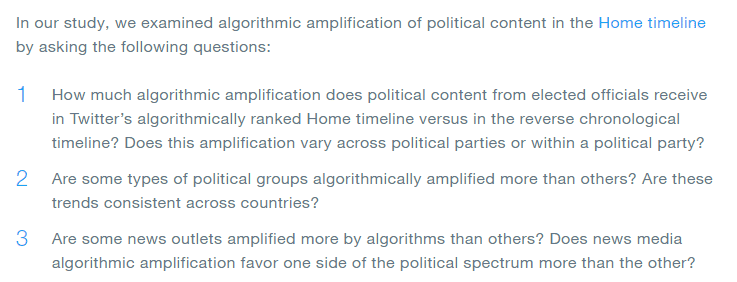The algorithm in question pertains to Twitter’s Home timeline, which displays Tweets from the user’s followed accounts as well as recommended content. Content is recommended based on accounts and tweets with which a user interacts.
Twitter’s study observed content from April 1st and August 15th, 2020, largely from elected officials in seven countries (Canada, France, Germany, Japan, Spain, the United Kingdom, and the United States). The site also studied the effect of its recommended algorithms on the amplification of political content from news outlets.
Upon analysing their findings, Twitter published that they had found a “statistically significant difference favouring the political right wing” among all countries observed except Germany. Right-leaning news outlets saw “greater algorithmic amplification” on Twitter compared to left-leaning counterparts.
The greatest discrepancy between right- and left-leaning algorithmic amplification was seen in Canada, where Conservatives saw a 167 per cent boost compared to the left-leaning Liberals’ 43 per cent.

“Algorithmic amplification is problematic if there is preferential treatment as a function of how the algorithm is constructed versus the interactions people have with it. Further root cause analysis is required in order to determine what, if any, changes are required to reduce adverse impacts by our Home timeline algorithm,” the post explained.
Twitter also established plans to make their data available upon request to “third party researchers who wish to reproduce [Twitter’s] main findings and validate [their] methodology”.
According to their blog, Twitter hopes that releasing the information will “spark productive conversation” and incite further research into the cause of such algorithmic biases.






